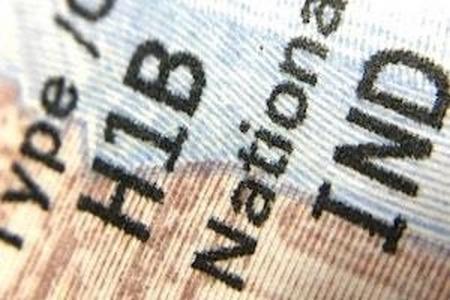Potential Reform to H1B Visa Regulations Imminent
 One of the cornerstones of the new president’s immigration policy, going back to the campaign trail, is to regulate the country’s H1B visa program more effectively, ostensibly to weed out those who abuse the system. However, the proverbial jury remains out as to the most effective way to do this, or even as to whether such reforms are truly necessary. Either way, those who hold H1B visas or seek to obtain them in the next fiscal year should be aware of the potential changes to the program.
One of the cornerstones of the new president’s immigration policy, going back to the campaign trail, is to regulate the country’s H1B visa program more effectively, ostensibly to weed out those who abuse the system. However, the proverbial jury remains out as to the most effective way to do this, or even as to whether such reforms are truly necessary. Either way, those who hold H1B visas or seek to obtain them in the next fiscal year should be aware of the potential changes to the program.
Current Program Regulations
For the last few decades, at least, the H1B program has been used to allow U.S. employers to hire foreign workers, seemingly to fill gaps in their workforce that cannot be filled by U.S. citizens. The requirements are fairly simple, but important to prove. They are: (1) that one has a bachelor’s degree or equivalent, in a field related to the one he or she intends to work in; (2) that one will be earning a wage (as opposed to volunteering or being paid in another manner); and (3) and that he or she will be engaged in a “specialty occupation.”
The “specialty occupation” requirement that often goes along with H1B applications, however, is that the job in question should not be able to be filled by a U.S. citizen. It is this long-observed guideline that causes the most debate over the program, as allegations of outsourcing firms abusing the H1B visa are common. Proponents of reform are visible in both major U.S. political parties, though there is disagreement about how best to accomplish this. Both parties generally agree, however, that the system is sometimes used exploitatively by hiring foreign nationals that will accept lower pay than U.S. citizen workers, and that this should be addressed via reform.
Suspension of Premium Processing
Normally, H1B visas are processed in about six months; however, there is a ‘premium processing’ option which guarantees that an application will be reviewed within approximately 15 days, for an elevated fee. On March 3, 2017, however, the administration announced that it plans to suspend the premium processing option (which began April 3, 2017), ostensibly to devote more time to sorting through the backlog of standard-process H1B applications and to “try to reduce overall H1B processing times.” Regardless of whether processing times are ultimately improved, which is in doubt, this change can cause significant issues for multiple groups of non-citizen visa holders.
Specialty workers may obviously be affected, but other groups such as graduate students or professionals that require a practicum or residency (like doctors) can be affected as well. United States Citizenship & Immigration Services (USCIS) does have what it calls expedite criteria, which lists several cases in which a visa application may be expedited, even with the suspension of premium processing. However, they are very dire—events such as the potential for severe financial loss, humanitarian intervention, or a compelling interest of USCIS are not going to apply to the majority of applications.
Contact an Immigration Attorney
Failure to act to ensure you remain in status may not only jeopardize your employment or your place in post-graduate work, but also your legal immigration status. If you have questions or concerns about your H1B visa or extension, contacting an immigration attorney may be critical. The passionate Chicagoland immigration lawyers at Mevorah & Giglio Law Offices are well versed in this area of law, and will do our best to help answer your questions. Call us today to set up a free consultation.
 English,
English,
 Spanish,
Spanish,
 Polish,
Polish,
 Urdu
Urdu













 Make a Payment
Make a Payment



